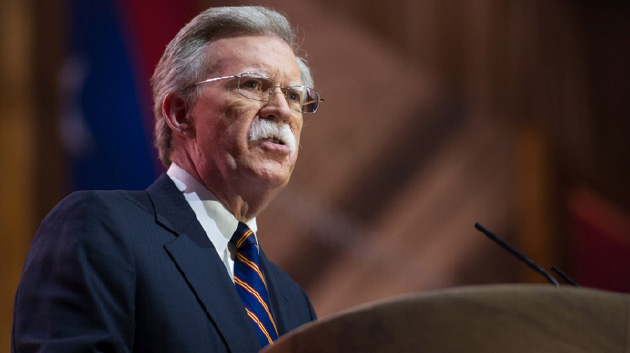China Objects to Trump Advisor’s Visit to Taiwan
(John Robert Bolton, American government official who served as national security adviser to U.S. Pres. Donald Trump. Christopher Halloran / Shutterstock.com)
Key points in this article:
- China is unhappy with the prospects of U.S. National Security Advisor John R. Bolton’s visit to Taiwan
- The U.S.-Taiwan security relationship is gradually being reinforced
- Japan is legally in the grey-zone with Taiwan, and must step forward to a Japan-Taiwan Relations Act
The U.S. has destroyed Syria’s chemical weapons facilities, is applying more pressure on North Korea, and is cementing their restraint on China.
Since coming to power the Trump administration has shown a stance that considers the importance of relations with Taiwan, and there are prospects of a visit by U.S. National Security Advisor John R. Bolton’s to Taiwan in June.
Press Secretary Ma Shaoguan of the Taiwan Affairs Office (an administrative office under the Beijing government) said in a press conference that the U.S. is making fruitless efforts in trying to approach Taiwan.
Bolton, on the other hand, is a pro-Taiwan politician. He has said that the protection of freedom in the oceans and the prevention of territorial annexation is the crux of the U.S. national interest. Having U.S. troops stationed in Taiwan will strengthen the military security of East Asia, he added. China will obviously object to such a visit.
Strengthening U.S.-Taiwan Relations in Security
U.S. government officials have never visited Taiwan since the 1979 diplomatic recognition of Taiwan as part of China. The Taiwan Travel Act passed in March this year, however, has finally made this possible.
A noteworthy point is that the act was passed unanimously both in the Senate and the House of Representatives. Not only Trump supporters, but even his enemies cannot deny that China is eating into Taiwan.
On 20 March, a few days after the Act was passed, Deputy Assistance Secretary Alex Wong of the Department of State, visited Taiwan. He attended a party hosted by the American Chamber of Commerce in Taiwan, which President Tsai Ing-wen was also known to have attended.
In early April, the Trump administration allowed U.S. firms to do business with Taiwan in submarine construction. In connection with this, Taiwan is due to hold a forum to discuss cooperating with U.S. military companies on 10 May.
The Difference Between “One China Policy” and “One China Principle”
How can it be, then, that Trump agreed to honor the One China Policy in his phone conversation with Xi Jinping in February last year?
Here is why: the U.S. government distinguished between the One China Policy and the One China Principle. Simply put, the Principle states that Taiwan is Chinese territory, and China is now trying to make this an established fact. (This consists of three points: 1) There is one China; 2) Taiwan is inseparably part of China; and 3) The People’s Republic of China is the only legitimate government that represents China.)
Much of the Japanese media have failed to distinguish between the two, and this has consequently helped promote China’s side of the argument.
The U.S. government, on the other hand, have assumed the stance that they won’t object to the One China Principle, but will participate in supporting Taiwan’s security nonetheless: this is the One China Policy. In other words, they are providing weapons to Taiwan under the Taiwan Relations Act.
In fact, the One China argument itself is vague to begin with; but one thing is clear. It is against China’s interests for the U.S. and Taiwan to strengthen relations. This is why China has been incessantly objecting to any U.S. moves in this direction.
Japan Must Sign A Taiwan Relations Act
What about Japan?
Japan’s relationship with Taiwan has been even more vague than the U.S.-Taiwan relations. Japan has been dealing with Taiwan without any legal backing, that is, without a Relations Act. Without legal authority and considering the power balance, China can easily cut the Japan-Taiwan connection.
Diplomacy stems from the realization of universal values – freedom of opinion, expression and speech – and the rule-of-law that is shared across the ocean.
Taiwan is a country that respects these values, and Japanese Prime Minister Shinzo Abe ought to seek to truly strengthen relations. Relations with Taiwan coincide with spreading the universal values of humankind.
Despite sharing the objective of restraining China, politicians in the Abe government have kept silent on the need for a Japan-Taiwan Relations Act. Japan must look at the U.S. move as an opportunity to step in and follow suit. Taiwan is imperative to protecting the security of Japan, and therefore the security in all of Asia.



















